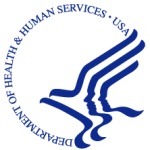- Industry: Government
- Number of terms: 33950
- Number of blossaries: 0
- Company Profile:
United States Department of Health and Human Services, Radiation Emergency Medical Management
A condition in which the ovaries stop working and menstrual periods stop before age 40. Natural menopause usually occurs around age 50. A woman is said to be in menopause when she hasn’t had a period for 12 months in a row. Symptoms of menopause include hot flashes, mood swings, night sweats, vaginal dryness, trouble concentrating, and infertility. Premature ovarian failure can be caused by some cancer treatments, surgery to remove the ovaries, and certain diseases or genetic conditions. Also called early menopause, premature menopause, and primary ovarian insufficiency.
Industry:Health care
A condition in which the kidneys stop working and are not able to remove waste and extra water from the blood or keep body chemicals in balance. Acute or severe renal failure happens suddenly (for example, after an injury) and may be treated and cured. Chronic renal failure develops over many years, may be caused by conditions like high blood pressure or diabetes, and cannot be cured. Chronic renal failure may lead to total and long-lasting renal failure, called end-stage renal disease (ESRD). A person in ESRD needs dialysis (the process of cleaning the blood by passing it through a membrane or filter) or a kidney transplant. Also called kidney failure.
Industry:Health care
A very slow-growing type of myeloma in which abnormal plasma cells (a type of white blood cell) make too much of a single type of monoclonal antibody (a protein). This protein builds up in the blood or is passed in the urine. Patients with smoldering myeloma usually have no symptoms, but need to be checked often for signs of progression to fully developed multiple myeloma.
Industry:Health care
The injection of umbilical cord blood to restore an individual's own blood production system suppressed by anticancer drugs, radiation therapy, or both. It is being studied in the treatment of cancer and severe blood disorders such as aplastic anemia. Cord blood contains high concentrations of stem cells (cells from which all blood cells develop).
Industry:Health care
A compound that is excreted from the body in urine. Creatinine levels are measured to monitor kidney function.
Industry:Health care
A condition in which a sense, especially touch, is distorted. Dysesthesia can cause an ordinary stimulus to be unpleasant or painful. It can also cause insensitivity to a stimulus.
Industry:Health care
Cancer that forms in tissues of and around the eye. Some of the cancers that may affect the eye include melanoma (a rare cancer that begins in cells that make the pigment melanin in the eye), carcinoma (cancer that begins in tissues that cover structures in the eye), lymphoma (cancer that begins in immune system cells), and retinoblastoma (cancer that begins in the retina and usually occurs in children younger than 5 years).
Industry:Health care
One of twenty amino acids (molecules that join together to form proteins). Glutamic acid may help nerve cells send and receive information from other cells. It is being studied for its ability to decrease or prevent nerve damage caused by anticancer drugs. Also called L-glutamic acid.
Industry:Health care
